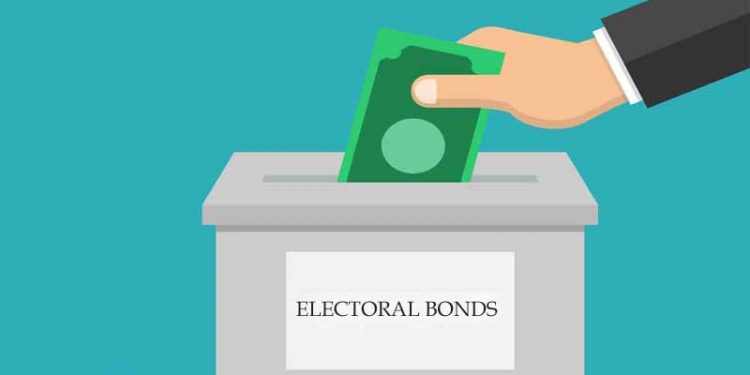The way the State Bank of India (SBI) has sought to interpret the Supreme Court’s order declaring the Centre’s Electoral Bond Scheme (EBS) unconstitutional and virtually declined to disclose the identities of both the buyers and recipients of the bonds tends to confirm the fact that law is often “more honoured in the breach than the observance.” The judgement on the EBS is a watershed moment in exposing wrongdoing of monumental proportions by the government. The SC in its order directed the SBI to submit by 6 March details of electoral bonds purchased since 12 April 2019, to the Election Commission of India (ECI). This would have disclosed the names of the beneficiaries of the scheme, i.e. the political parties, and names of those who donated to political parties through buying the bonds for electioneering. The allegation that the ruling BJP got the lion’s share of the funds generated in this manner by tampering with the laws of the land and Constitutional provisions may seem true. This is said to have disproportionately favoured the ruling party in enriching itself through a quid pro quo letting the contributors influence government policies to augment their profits in return for the money they had given in the name of purchasing the electoral bonds.
The apex court judgement was hailed as a triumph of democracy which struck at the roots of a dubious scheme.
However, far from complying with the court order, the SBI in a brazen show of defiance and seeming intent to shield the current dispensation, moved on 4 March its plea for extension of time till 30 June arguing that “decoding” the data and matching donors to the donations would be a “complex process”. This meant not only the court order on submission of the data to the ECI by 6 March was flouted, but also the very purpose of the judiciary’s laudable efforts to prevent the misuse of money for electioneering in the name of the EBS before the next Lok Sabha election to be held soon was defeated.
Banking experts have questioned the SBI’s plea that it would take a long time to compute the details of the purchasers of the bonds and their beneficiaries since they point to the digitised system where it takes only a click of the mouse to get all the data and this can be done in 24 hours. The government has risked its reputation of being transparent. Its ‘zero-tolerance towards corruption’ claim is also proven untrue. Obviously, it is pulling the strings from behind to make the SBI approach the SC with the absurd and motivated plea seeking enough time to ensure the general elections are over before the disclosure is made public. In that case, the revelation of names of the donors and their main beneficiaries would be inconsequential.
The Association for Democratic Reforms (ADR), the lead petitioner, has done a commendable job by approaching the SC a day after the deadline for SBI to submit details of electoral bonds to the ECI ended in demanding contempt action against the bank for defying the court’s directive. The SC immediately responded and Advocate Prashant Bhushan appearing for the NGO, urged the bench presided by the CJI to hear the plea on 11 March when he said the SBI application too is likely to be taken up. ADR contended that SBI “has deliberately filed” the application on 4 March 2024, “at the last moment in order to ensure that the details of donors and the amount of donations are not disclosed to the public before the coming Lok Sabha elections.” The petitioner has made the interesting plea that the SBI has the record of the unique number allotted to each electoral bond and KYC details of its purchaser. In fact, the requirement of KYC is mentioned in Section 4 of the EBS itself and as such SBI is well aware of the identity of purchasers of each electoral bond. The nation is waiting to see the SC act with firmness it has already shown and bring to book those trying to make a mockery of its momentous judgement. Along with this may come the next hurdle of getting the ECI to divulge the details, even if SBI should agree to give the details of electoral bonds in a reasonable time period.







































